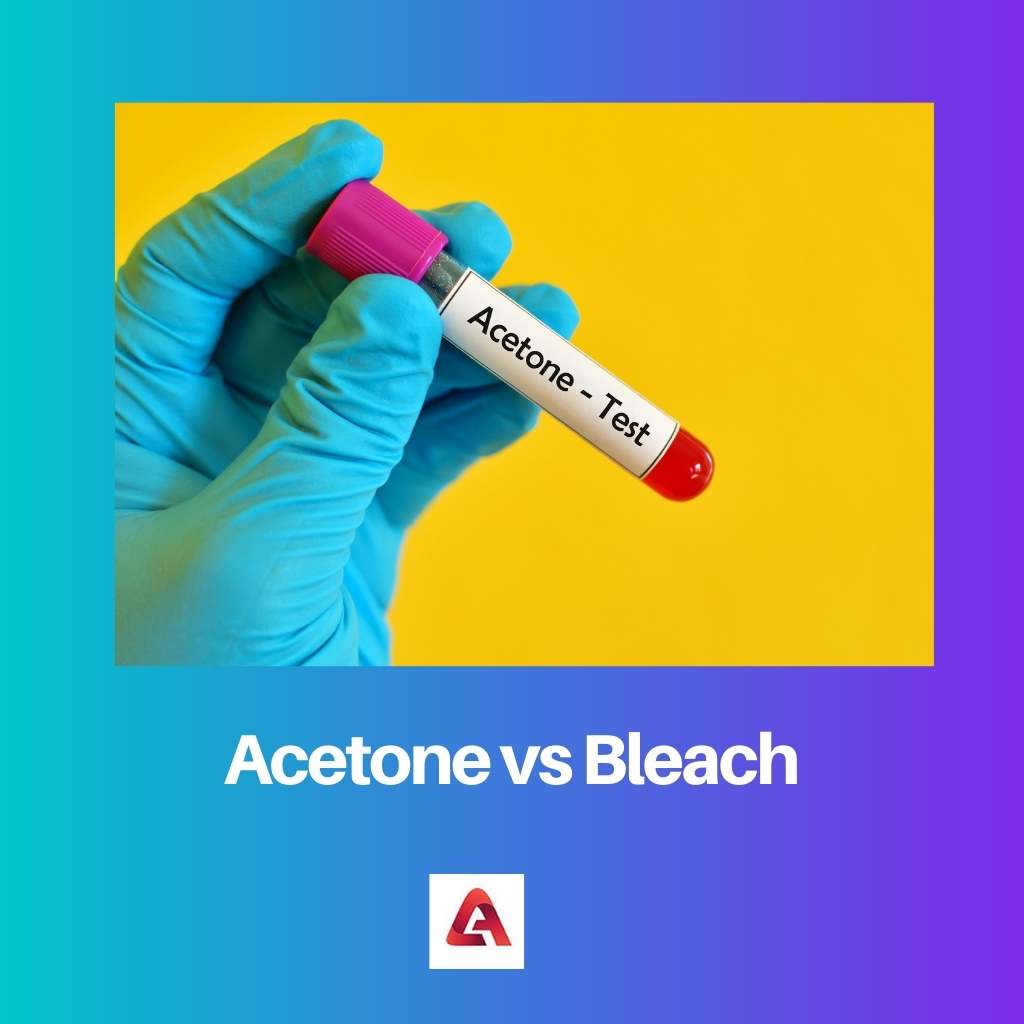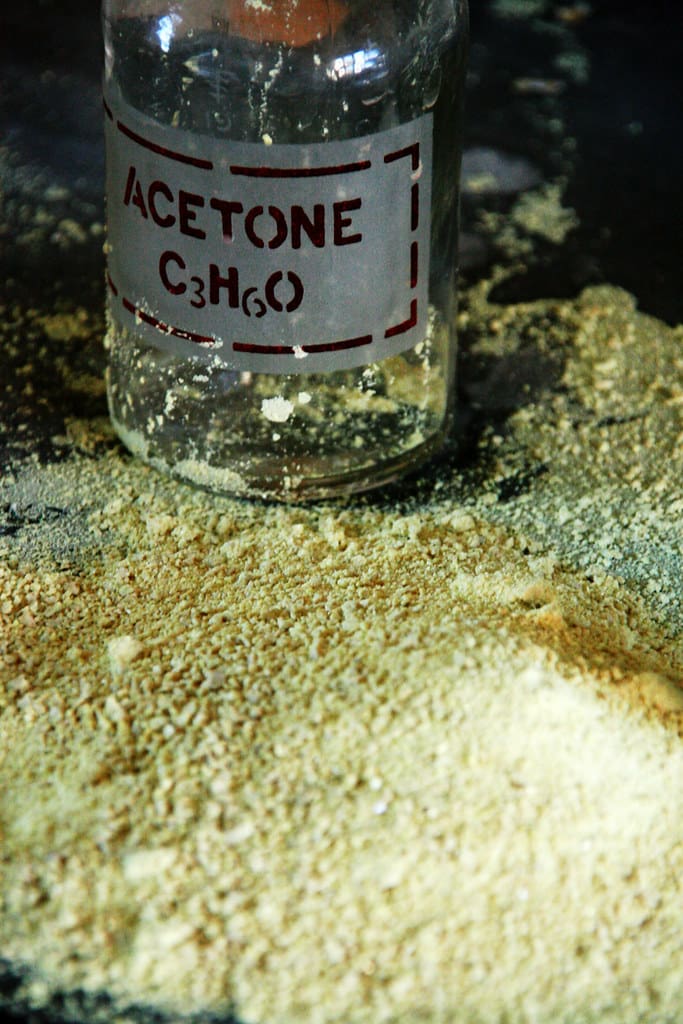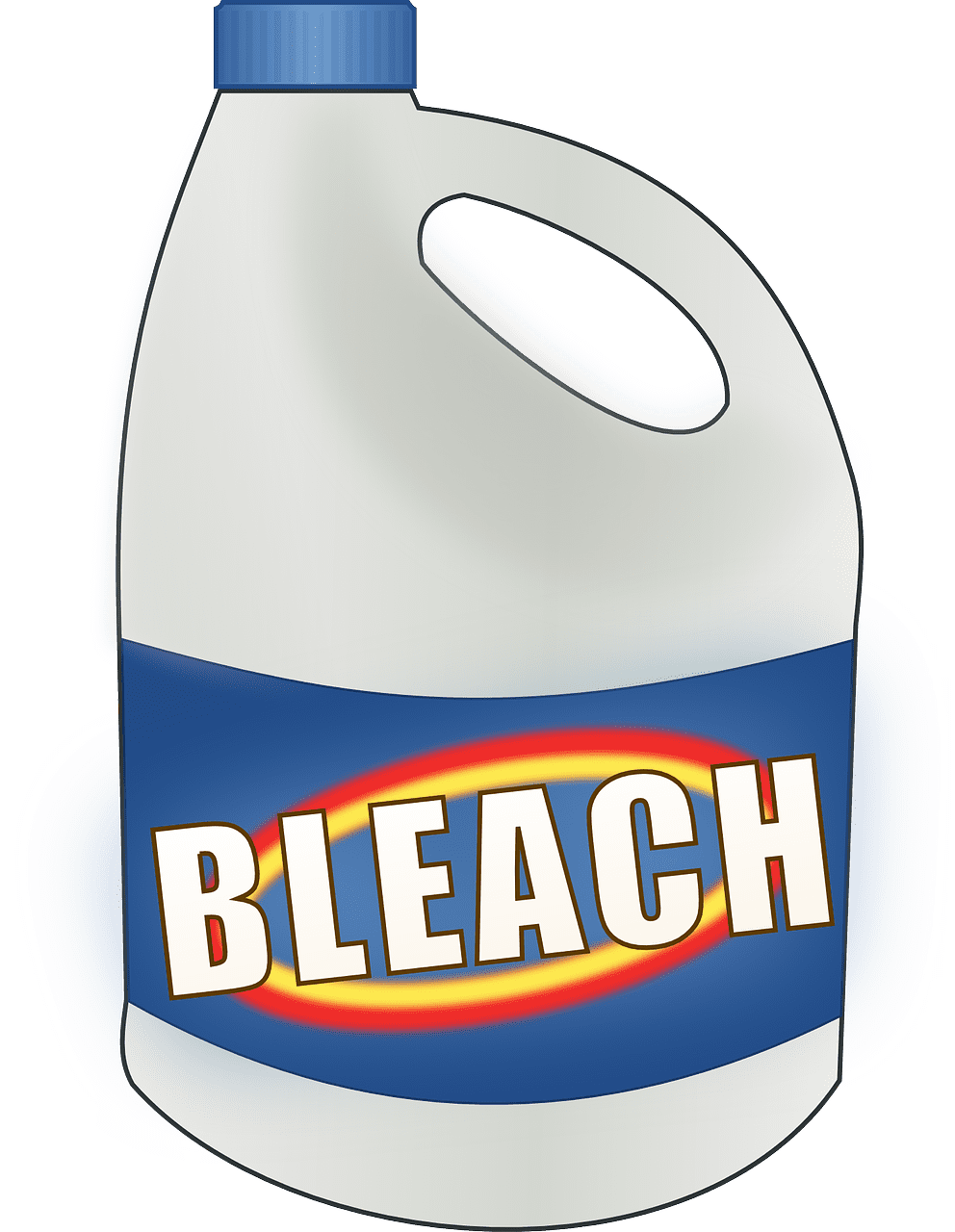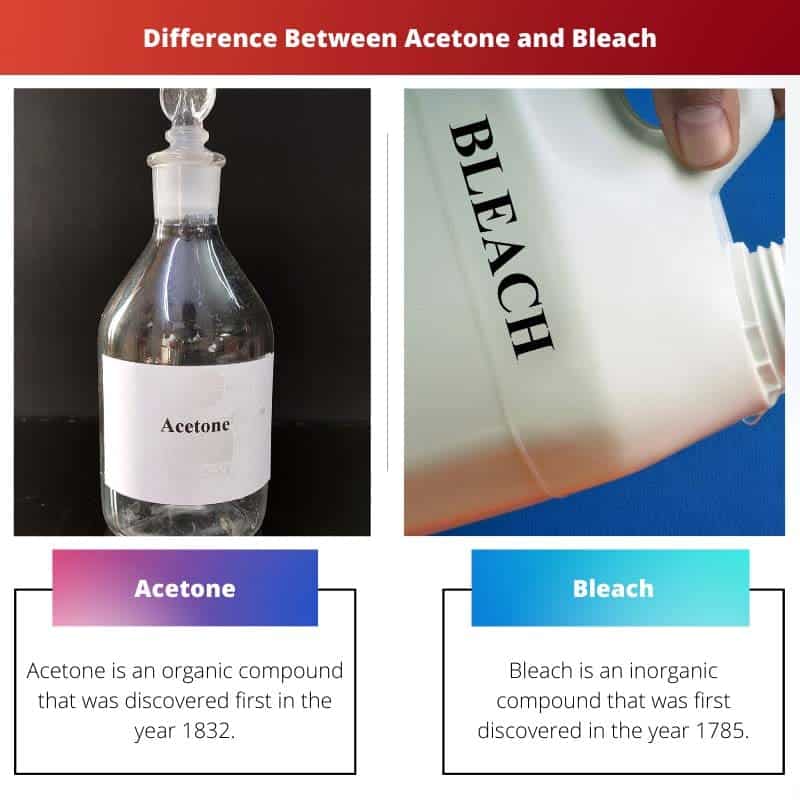Acetone and bleach are two common terms you might hear in the household as they are used effectively for cleaning. They work tremendously on an individual level but prove dangerous when mixed.
The difference between acetone and bleach is that acetone is a volatile, colorless liquid used for cleaning. It is an organic compound represented by the chemical formula C3H6O. On the contrary, bleach is an inorganic compound and a solution of sodium hypochlorite, which is toxic in nature and used widely for lightening and cleaning purposes.
Key Takeaways
- Acetone is an organic solvent used for dissolving substances, while bleach is a disinfectant that eliminates bacteria and viruses.
- Acetone finds its use in nail polish removers and paints thinners, whereas bleach cleans and whitens surfaces.
- Acetone is flammable and evaporates quickly, but bleach can produce harmful fumes when mixed with other chemicals.

Acetone is an organic compound that is present in the human body in the blood and urine. The chemical formula used for presenting this substance is C3H6O.
Bleach is an inorganic solution of sodium hypochlorite used for cleaning and whitening. This substance is categorized into three aspects: chlorine, sulfur dioxide, and peroxide.
Comparison Table
| Parameters of Comparison | Acetone | Bleach |
|---|---|---|
| Nature | Acetone is an organic compound that was discovered first in the year 1832 | Bleach is an inorganic compound that was first discovered in the year 1785 |
| Chemical Formula | It is represented with the chemical formula C3H6O | It is represented with the chemical formula NaOCl |
| Flammable | It is flammable | It is inflammable |
| Toxic | If consume excessively it may cause irritation | It is comparatively more toxic and can damage the stomach and lungs |
| Solvent | Acetone is a reliable solvent | Bleach is not commonly used as a solvent |
| Affordability | It is available at a more affordable price | It is available at a comparatively less affordable price |
| Use | Effectively use in nail polish and paint remover and as a thinner as well | It is used to remove stains and clean or whiten the surfaces |
What is Acetone?
Acetone is a colorless organic compound widely used for household cleaning. This substance is effectively used in paint and nail polish removers.
Due to the chemical structure and properties, this substance can dissolve or collapse the other material like paint or grease and hence effectively used in removing paints. Acetone is also called propanone and dimethyl ketone.

What is Bleach?
Bleach is an inorganic solution of sodium hypochlorite majorly used for cleaning purposes. It is represented by using the chemical formula NaOCl.
Bleaches are good oxidizing agents and are effectively used to remove colors. The chemical properties and effectiveness of bleaches may vary from one another to some extent depending on the chemicals and composition used. Bleach is used tremendously for commercial and domestic purposes.

Main Differences Between Acetone and Bleach
- Bleach is comparatively more toxic than acetone. If consumed excessively, acetone may irritate the skin and eyes. But consumption of bleach can damage the stomach and lungs and cause the person’s death. If an individual inhales the bleach fumes, then it can damage the lungs.
- Acetone has a high production capacity as it is commonly used in households for cleansing purposes and also used in nail polish and paint remover and hence it is available at affordable prices. While bleach, on the other side, is available at less affordable or higher prices than acetone.

Reference
- https://www.sciencedirect.com/science/article/pii/S0022391399700600
- https://www.sciencedirect.com/science/article/pii/S0109564104000776

I never knew acetone and bleach had such different properties. This article has taught me a lot.
The detailed comparison between acetone and bleach was enlightening. It’s crucial information for anyone using these chemicals.
Absolutely. Knowing the risks and safe uses of these substances is essential.
This article provided valuable information on acetone and bleach differences and properties. Understanding the risks of improper use of acetone and bleach is essential for household safety.
Yes, understanding the properties and risks of these compounds can help prevent accidents. It’s an informative article.
This article provided good insight into the differences between acetone and bleach. Understanding these differences can prevent dangerous situations at home.
The comparison table is quite insightful and summarizes the differences effectively. I appreciate this detailed analysis.
This article is great! I’m glad I now understand the differences and uses of acetone and bleach. I was unaware of these distinctions before.
Agreed. The article is comprehensive and provides valuable knowledge about acetone and bleach.
It’s essential to raise awareness about the potential dangers of these substances. This article does an excellent job of educating the readers.
I didn’t know about the differences between acetone and bleach. This article was very enlightening. I now know how to use these chemicals responsibly.
Finally, an article that educates people about acetone and bleach. Understanding the differences and safety measures is crucial.